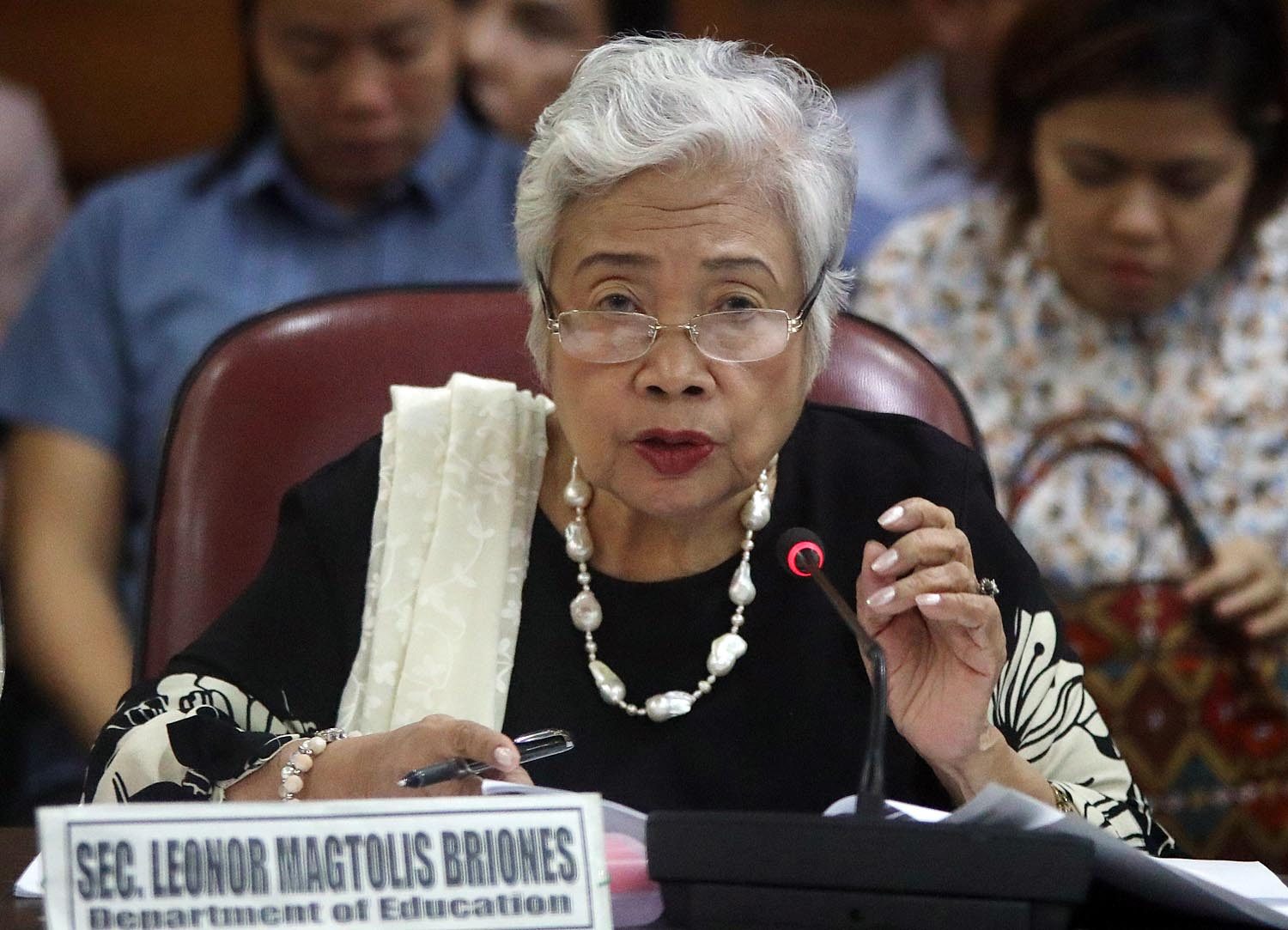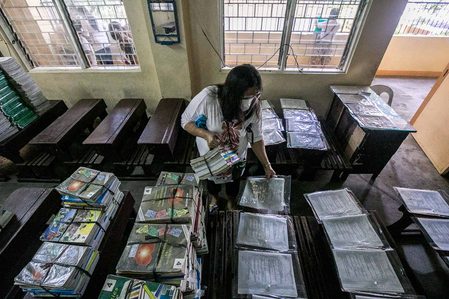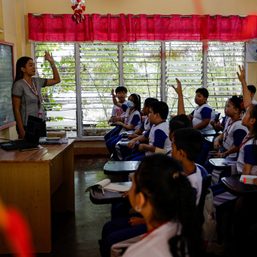SUMMARY
This is AI generated summarization, which may have errors. For context, always refer to the full article.


As the government prepared for the return of limited face-to-face classes in 2021, Education Secretary Leonor Briones said that children were more likely to contract COVID-19 at home than in school but for experts, it was still too early to tell if this would be the case.
In a virtual press briefing on Wednesday, December 16, Briones was asked whether holding face-to-face classes could put children at risk. Citing a report from the UNICEF, she said that studies have shown that schools were the lowest threat for COVID-19 infection.
“Sinasabi na lahat ng pag-aaral nagpapakita na ang pinaka-lowest threat ay sa schools. Ang malaking posibilidad ay sa homes kasi (Studies have shown that the lowest threat to get COVID-19 is in schools. The big possibility is at homes because) that is where they spend most of their time and other places,” Briones said.
In the position paper sent by the DepEd to reporters, the agency cited the report by the UNICEF on the Global Evidence of COVID in Children. It said that children and adolescents comprise 1-5% of the total reported case. Meanwhile, 91% of the reported cases on the children got the virus from their homes, according to the Centers for Disease Control and Prevention (CDC).
But the CDC warned that children, like adults, who have COVID-19 but have no symptoms could still spread the virus to others.
“Most children with COVID-19 have mild symptoms or have no symptoms at all. However, some children can get severely ill from COVID-19. They might require hospitalization, intensive care, or a ventilator to help them breathe. In rare cases, they might die,” CDC said.
In the Philippines, 7% of the 449,000 reported cases (as of December 13) belong to the 0-19 age group.
‘Too early to conclude’
In a virtual press briefing on Thursday, December 17, Dr Anna Ong-Lim of the health department technical advisory group said that it was too early to conclude that children were prone to get the virus at home than in school. She said it was only now that schools across the globe were gradually opening classrooms again.
Lim said that earlier in the pandemic schools were shut to contain the spread of the virus. This meant that children were at their respective households.
“Dahil nagsama-sama na ang mga bata sa bahay, siyempre saan kumalat ang sakit? Siyempre doon sa mga households,” she explained. (Because students were ordered to stay at home, where would the disease spread? Of course, in the households.)
The Department of Education said on Wednesday that 1,114 schools have been nominated to join the pilot implementation or dry run of face-to-face classes by January next year.
Briones said 3 areas, including virus epicenter Metro Manila, asked to not be included in the dry run. The other two were Davao and Cotabato.
She added that the country will do pilot testing to prepare the agency for the resumption of face-to-face classes in the country once the COVID-19 vaccine becomes available. She added that the students’ participation in the dry run would be “voluntary” and would require parent’s consent. – Rappler.com
Add a comment
How does this make you feel?

![[The Slingshot] Red zipper on the mouth of Sara Duterte](https://www.rappler.com/tachyon/2024/04/TL-red-zipper-sara-duterte-april-12-2024.jpg?resize=257%2C257&crop=335px%2C0px%2C720px%2C720px)

![[OPINION] How about setting up a heat health warning system in PH schools?](https://www.rappler.com/tachyon/2024/04/heat-health-warning-system-in-PH-schools.jpg?resize=257%2C257&crop_strategy=attention)

![[ANALYSIS] The multiplier effect of negligence in education](https://www.rappler.com/tachyon/2024/04/The-multiplier-effect-of-negligence-in-education.jpg?resize=257%2C257&crop=277px%2C0px%2C720px%2C720px)
There are no comments yet. Add your comment to start the conversation.